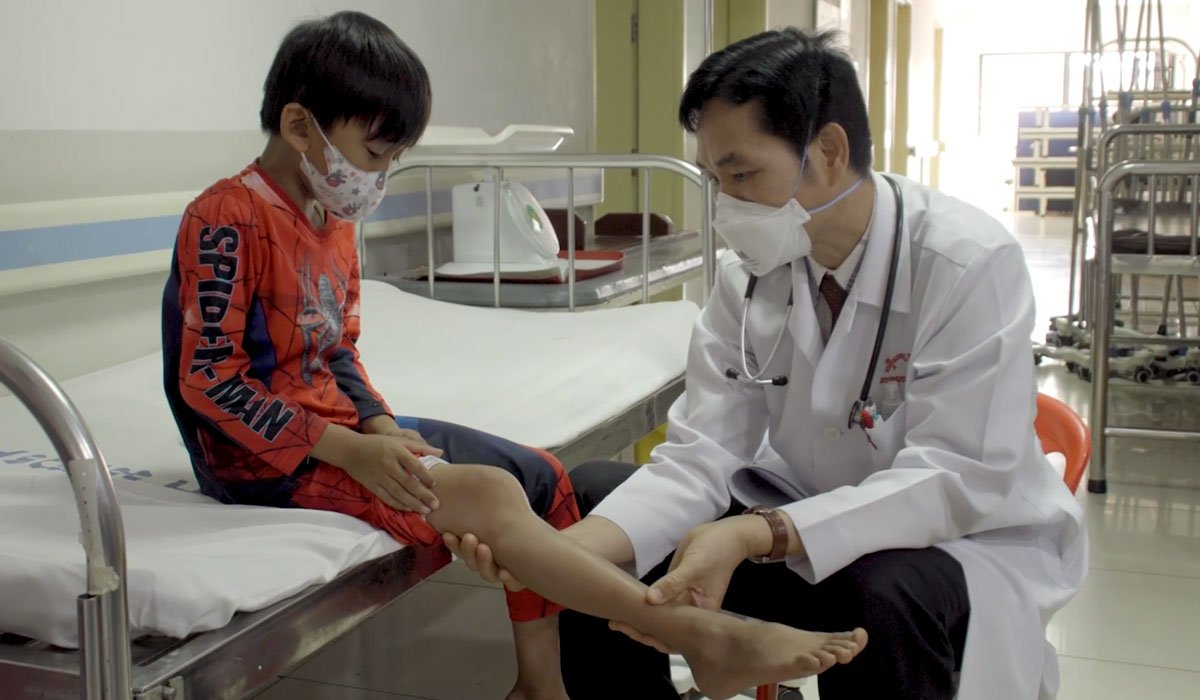Hemophilia Care Improves in Cambodia
“Before the WFH Humanitarian Aid Program, patients with hemophilia had never beendiagnosed. Since starting to treat patients… we have noticed significant changes to the patient’s quality of life.” —Chean Sophal, MD, Cambodia, National Pediatric Hospital,Phnom Penh.
The WFH Humanitarian Aid Program has been active in Cambodia for many years. The Program has supported people with bleeding disorders (PWBDs) through the donation of over 8.7 million IUs of donated factor, and through the training of healthcare professionals (HCPs). This support has drastically transformed the care in the country. Where once PWBDs were almost never diagnosed, now, they are properly treated and put on prophylaxis. The sharing of knowledge between HCPs also means that the country is becoming more self-sustaining for the treatment of PWBDs—a key objective for the World Federation of Hemophilia (WFH).
Specialists at the National Pediatric Hospital hemophilia treatment center (HTC) have noticed drastic reductions in disabilities and acute bleeds at their facility since they began working with the Program. The donated factor has helped immensely, but medical training—for diagnosis and for treatment—has proven to be even more effective. Because trained specialists can go and train their colleagues, the quality of education is organically expanding and sustainable. In other words, in Cambodia, care is no longer dependent on the direct intervention of the Program.
The WFH Humanitarian Aid Program has given the National Pediatric Hospital the tools to make a difference. Pechkethia, MD, says that their HTC has seen the number of patients needing acute treatment decrease. When patients are admitted to the hospital, their stays are now much shorter than they were in the past. The impact, he says, goes far beyond the patient: healthy kids means healthier families, and healthier communities.
The WFH Humanitarian Aid Program improves the lack of access to care and treatment by providing much-needed support for people with inherited bleeding disorders in developing countries. By providing patients with a more predictable and sustainable flow of humanitarian aid donations, the WFH Humanitarian Aid Program makes it possible for patients to receive consistent and reliable access to treatment and care. To learn more about the WFH Humanitarian Aid Program, visit www.treatmentforall.org.

